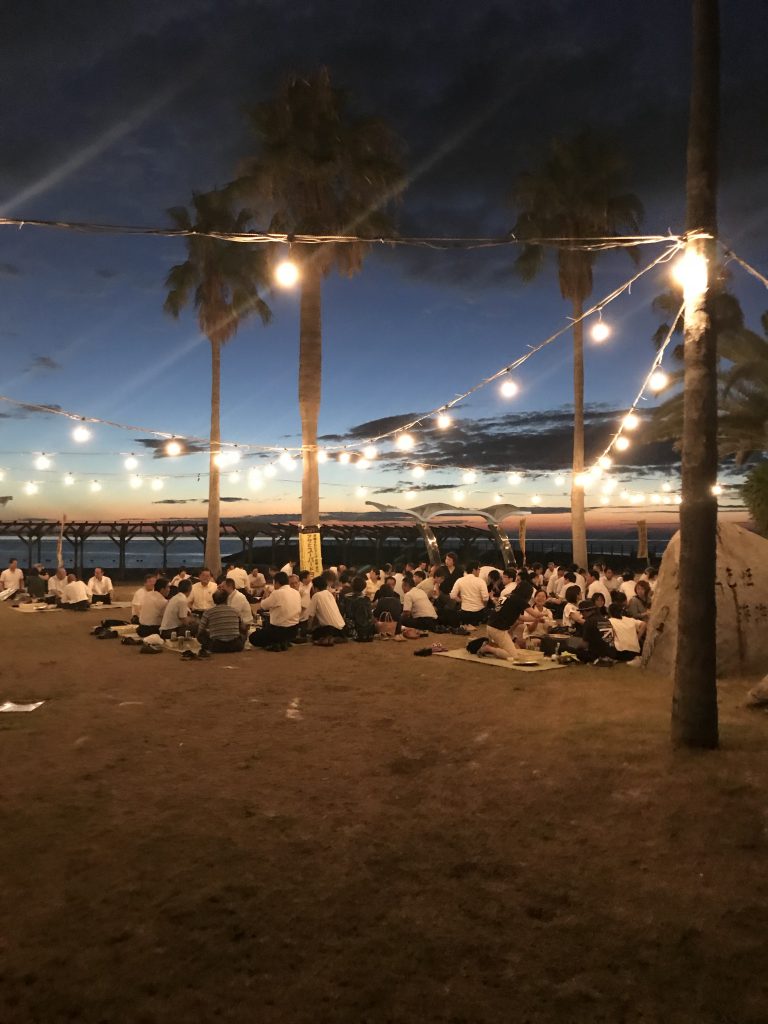ブログ
英会話・英語 アミック 英語のことわざ
こんにちは、アミック石井校の辰馬です。
石井校で水曜日に働いているアンドリュー先生が、授業で使う教材を印刷しようとしていたときのこと。設定がうまくいかなかったのか、1回目、2回目と思った通りにできず、いよいよ3回目というときになって、”Third time’s a charm.”と呟きました。これ、実は「3度目の正直」ということわざの表現なんです。日本語のものと少し違いますね。反対に、「2度あることは3度ある」は”Things come in threes.”と言ったりします。
日本語と英語のことわざには、ほとんど同じ意味のものもあれば、全く違う表現を使うものもあります。いくつか例を挙げてみるので、日本語だとどんなことわざになるのか、考えてみてくださいね!
① Where there’s smoke, there’s fire.
② Time flies like an arrow.
③ Don’t count your chickens before they’re hatched.
(答え:①火のないところに煙は立たず ②光陰矢のごとし ③取らぬ狸の皮算用)
英会話・英語 アミック – Three ways to use ‘pick up’
Three ways to use ‘pick up’
‘Pick up’ is a phrasal verb. This means it is a verb (pick) followed by a particle (up). Phrasal verbs are tricky because they can have many different meanings depending on the context.
Learning something
We can use pick up to describe learning something
- Children pick up languages very quickly.
- I picked up the guitar from spending time with musicians.
Buying something
We can use pick up informally to describe buying something.
- I often pick up some milk on my way home.
- She picks up lots of items in the Christmas sales.
Getting an illness
We can use pick up to describe getting an illness.
- I think I picked up a cold.
- He picked up the flu from his classmates.
6 More Words My Kindle Has Taught Me – 英会話・英語 アミック
Back in July, I praised my Kindle for all the new words it teaches me thanks to its convenient dictionary feature. Although I usually forget the meanings shortly after looking them up, here are six more words I’ve highlighted and ‘learned’ through reading over the past few months:
- Akimbo: standing with your hand on your hip and elbow bent outward.
- Cogent/Cogency: being appealing to reason or the mind.
- Flotsam: the part of a ship’s wreckage and cargo found floating on the water.
- Patina: a green film or crust that appears on the surface of old bronze or copper.
- Regolith: the layer of loose dust, dirt, soil, etc. covering a planet.
- Welkin: the heavens or upper atmosphere.
Halloween costumes「英会話・英語 アミック」
Now that October is approaching and Halloween along with it, I’ve begun to seriously think about my costume for my favorite holiday. It’s not an easy process especially after the scary success of my Sadako last year. I try to do something new every year and mostly stick to the horror side of things but since I love some anime and just enjoy role-playing in general I guess I am open to new ideas as well.
Joe
The “Curse” of the Hope Diamond
The innocently named Hope Diamond has a sordid history. Although no one knows where it was discovered, it is believed to have been mined in India in 1666 and then sold to King Louis XIV of France. Many have possessed this large, icy-blue diamond for a period of time before succumbing to an unnatural fate. I initially wanted to write about the scandalous, deathly mishaps of each owner, but realized Amic prefers teachers not to speak about gruesome topics, no matter how interesting they are. Long story short, the diamond exchanged hands and seemingly everyone who came in contact with the stone met their demise either at their own hand, by someone close to them, or simply by an act of God. In reality, the Hope Diamond is just that, a very large, beautiful diamond that is decidedly not-cursed. The curse came about as a selling point from diamond dealers and jewelers to make the Hope Diamond seem more interesting to buyers. A simple google search will prove that the majority of the owners lived long full lives and the diamond changed owners only after the previous owner’s death. That being said, while a few of the owners were bankrupt and forced to sell the diamond to pay off their loans, we can blame this on poor financial skills (like buying a massive diamond instead of focusing on prior debt). Others, sadly, met their fate at the guillotine, but then again the French Revolution was in full swing, so again, no curse, just bad timing. A quick google search of one of the supposed victims of the Hope Diamond curse reveals nothing, except that no character by that name existed or was affected by a malevolent diamond. Today, the Hope Diamond resides in the Smithsonian Museum in Washington D.C, where the curator says that it has been “nothing but good luck” for attendance levels.
英語習得方法~映画鑑賞編~

英会話・英語 アミック – ‘No’ vs ‘not any’ vs ‘none’
Do you have any change?
No + noun
We can use the verb + no + a noun
- Sorry, I have no change
- I have no idea what you mean.
Don’t + verb + any + noun
We can use the negative don’t + the verb + any + the noun.
- Sorry, I don’t have any change.
- He doesn’t have any time to speak.
None
We can use none without a verb or a noun. It’s a short answer.
- Sorry, none at all.
5 Of American College Football’s Greatest Traditions – 英会話・英語 アミック
Autumn is an extremely important time of year for people that live in certain parts of the United States. In addition to the fall harvest, Halloween festivities, and Thanksgiving, it’s also the season for America’s third-most popular spectator sport: college football.
College football is a weird mix of modern commercial sport, 100-year old traditions, and sometimes ugly tribalism. This is especially true in the Midwest and southern parts of the country, where despite its short season, the sport is talked and thought about all year long. Similar to a religious pilgrimage, fans wait all year to make one or two trips to their favorite university team’s stadium, sometimes driving hundreds of miles in the process. Before the game, many tailgaters park in the same spot they have for decades, grilling food and playing games with younger generations whom will one day carry on the same customs with their own families.
Once inside the actual stadium, students, fans, and alumni observe or take part in school traditions that have been happening long before they were born. Every university with a football program could have a book written about their own history and customs, but here are five of my favorite traditions from across college football:
Running With Ralphie
Several schools have a live animal that serves as the school’s mascot. None of them however are as large as the University of Colorado’s Ralphie the Buffalo. Since 1934, five different Ralphies (along with five student handlers in charge of steering her) charge out onto the field before each home game. Occasionally Ralphie even breaks free or drags some of her handlers along for a ride.
Clanga-Clanga
There are certain ‘artificial noisemakers’ that can’t be brought into a sports stadium, such as airhorns or anything that makes so much noise the opposition can’t hear themselves think. That is unless you are Mississippi State, whose fans have been bringing custom-decorated cowbells to games since the early 1900s, when a cow wandered onto the field in the middle of a game. It is said that Bulldog fans can’t buy their first cowbell for themselves, but instead it must be gifted as a rite of passage.
Jump Around
What happens when you mix a nearly-30 year old hip-hop song and 80,000 University of Wisconsin Badger fans? Sometimes, an earthquake. In between the third and fourth quarters of every home game at Camp Randall Stadium, House of Pain’s “Jump Around” blares through the loudspeakers, prompting every person in the stadium to indeed jump up and down. The effect is so powerful that the tradition has been cancelled in the past due to concerns about the stadium’s structural integrity.
The Kinnick Wave
This tradition is only a year old, but all agree it’s a keeper. In 2017, the University of Iowa recently opened a new children’s hospital that overlooks the Hawkeyes’ football stadium. At the end of the first quarter of each home game, every fan, player, and coach in the stadium pauses what they are doing and waves to the children and their families watching from the hospital’s top floor.
Script Ohio
Who thought cursive handwriting could give someone chills? Since 1936, The Ohio State University Marching Band has been doing just that to Buckeye football fans whenever it performs ‘Script Ohio’. Starting from a block formation at the top of the field, band members high-step their way in a follow the leader formation, timing their steps perfectly as to not collide with each other when crossing paths, all while playing ‘Le Régiment de Sambre et Meuse’, an old French military march. The formation ends with the 228-band members spelling out Ohio and the customary bowing by the sousaphone player after he ‘dots’ the i.
Imotaki September 3rd「英会話・英語 アミック」
This past Monday Andrew-sensei and I went to an imotaki event at Goshikihama in Iyo-shi with my father-in-law and another friend from the States. It was a beautiful late-summer-not-quite-fall night, and the large pots of imotaki went great with the tall cans of Asahi as the sun set. There was also some entertainment: a group of taiko players! It was an ideal transition into my favorite season.
-Joe

The Day Wikipedia Went Dark 英会話・英語 アミック
When I’m looking for a topic for my weekly blog post, the first place I head to is *drum roll*… Wikipedia! I know Wikipedia gets a lot of negativity because it can be user edited, (and not always with correctly sourced information), but Wikipedia is truly a wealth of information. I, for one, love their homepage, because it’s the news and history, condensed. It’s up to me to see what piques my interest at that moment. If nothing does, fear not! I can always click “On This Day” and be whirled away to a list of birthdays, deaths, and other anniversaries. I love a good list and usually I can find an interesting read from either the homepage or the “On This Day” feature. I know I’m not the only one who loves Wikipedia. I haven’t gone so far as to create an account and edit articles, after all, I am but a mere plebe when it comes to research. That being said, I’ve used Wikipedia to write these blogs, to do research for essays in high school and college, to win arguments, to check spelling…the list goes on and on. I wondered, what would happen if Wikipedia just went away?
Once upon a time, Wikipedia tested this alternate timeline while protesting SOPA and PIPA, American bills that would censor websites, in 2012. Instead of its usual blue and white theme, the following image was displayed on the homepage:

While I applaud the website for shutting down (aka losing revenue) in response to an unjust bill, a different part of me says, a whole 24 hours without Wikipedia!? What about students who procrastinated and needed to get projects finished? What about people who always have to be right? What about people like me who check the Wikipedia homepage for fun? I suppose without net neutrality, using the internet for personal enjoyment would become a thing of the past anyway. I wish I could find reactions from Wikipedia-users in 2012 to Wikipedia’s black out, but alas, I don’t know how to optimize that search. My reaction? :













